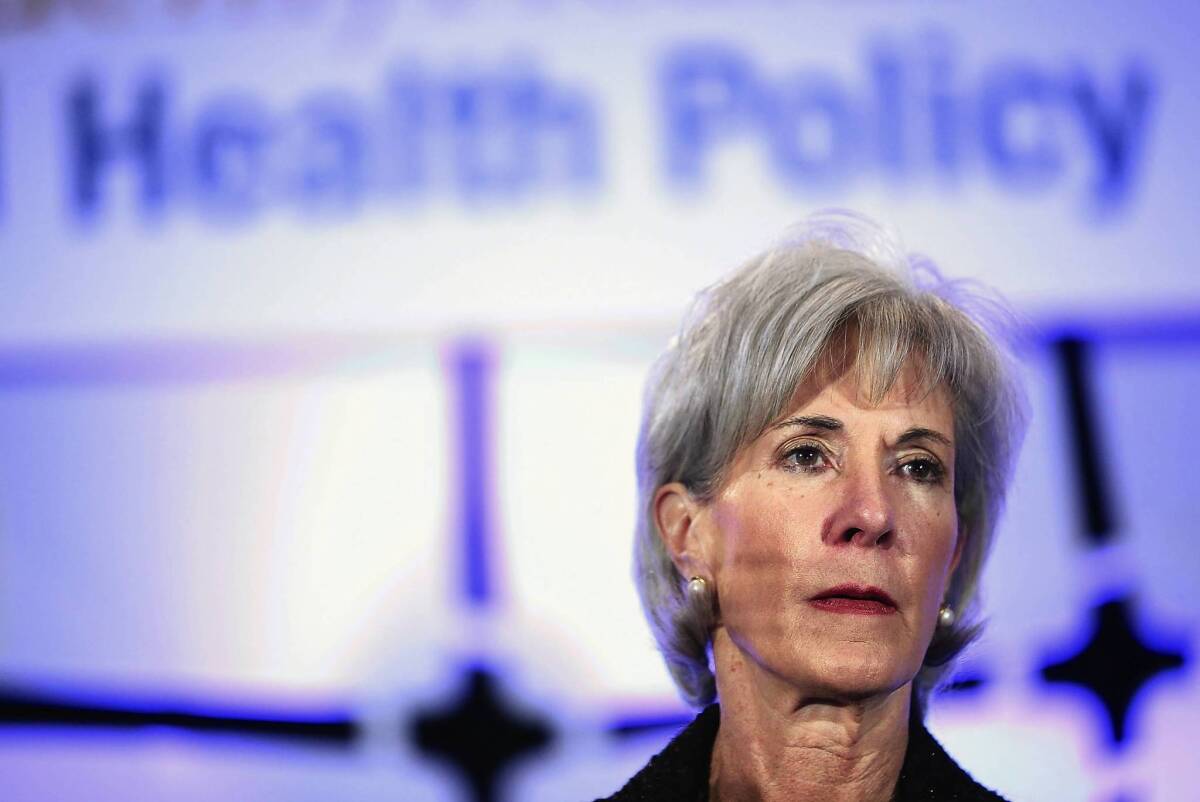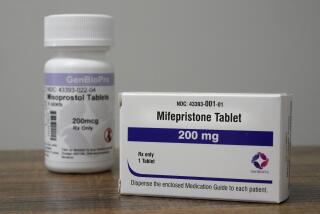Letters: Sexism and the Plan B debate

Re “A birth control double standard,” Opinion, May 20
Bravo to Meg Waite Clayton’s articulate Op-Ed regarding society’s double standard for male and female sexuality, and the Obama administration’s consequent restriction of access to emergency contraception. As an adolescent medicine specialist, I have seen the punishing results of stigmatizing girls’ sexual expression firsthand, having cared for 12- and 13-year-old mothers. Conversely, I have seen many patients who greatly benefited from using Plan B, the so-called morning-after pill.
President Obama and Health and Human Services Secretary Kathleen Sebelius’ efforts to bar easy access to an extremely safe, effective medication with negligible side effects (much safer than, say, a bottle of Tylenol) reflects society’s mistrustful, punitive attitude toward young women and its shameful disregard for scientific expertise.
Putting our collective heads in the sand will not stop young people from having sex. But nurturing and supporting their resourcefulness, resiliency and proactiveness can prevent a life-altering, unplanned event. Plan B should be available without restriction to all youths, regardless of gender or age.
Claudia Borzutzky
Los Angeles
The writer, a medical doctor, is an assistant professor of clinical pediatrics at USC.
When Clayton compares condoms to Plan B, she’s comparing apples to oranges.
Condoms may be used on a daily basis with no side effects. Plan B is a drug (levonorgestrel) with potentially serious side effects and is not intended for daily use. Adverse reactions related to Plan B include nausea, heavier menstrual bleeding, fatigue, headache, lower abdominal pain and dizziness. In addition to side effects, there are a host of drug interactions.
Anyone using Plan B on a regular basis should be on oral contraceptives under the supervision of a physician or nurse practitioner. Plan B is a serious drug and should be treated as such.
Sam Pinterpe
Huntington Beach
The writer is a retired pharmacist.
Clayton asks, “Is there a word for a promiscuous boy that compares with ‘slut’?”
There is such a word, one that’s widely considered to be the masculine complement to the designation “slut.” It’s also a monosyllable, and it has three of the four letters that appear in “slut.” Alas, that word is “stud.”
As long as the boys themselves, men in general and, indeed, many of the girls who sleep with these guys think along these lines, the double standard that Clayton laments will continue to reign supreme.
Bruce Burroughs
Sherman Oaks
In asking why society doesn’t support Plan B for our daughters when boys have cheap and ready access to condoms, Clayton makes important points. But her argument for easily accessible Plan B would have been helped had she addressed a fundamental issue: the difference in vulnerability between boys and girls.
In a sexual relationship, which of the two people is relatively more vulnerable? The girl, as boys do not get pregnant. So how do we make the boy as responsible as the girl? Chances are we cannot make boys as vulnerable as girls, but that doesn’t mean we should ignore this issue altogether and keep the status quo.
Robert E. Tumelty
Seal Beach
ALSO:
Letters: One ‘scandal,’ many goals
Letters: Sour notes on Dr. Dre’s musical gift
More to Read
A cure for the common opinion
Get thought-provoking perspectives with our weekly newsletter.
You may occasionally receive promotional content from the Los Angeles Times.






